Look at Wuhan a year after 1st acknowledgment of COVID-19
"It's back to the normal state of life as before"...
Just hours before thousands of revelers rang in 2020 in front of Wuhan's iconic Jianghan Road Customs House, the city's health authorities issued their first public announcement that they had been tracking a pneumonia outbreak connected to a seafood market in town.
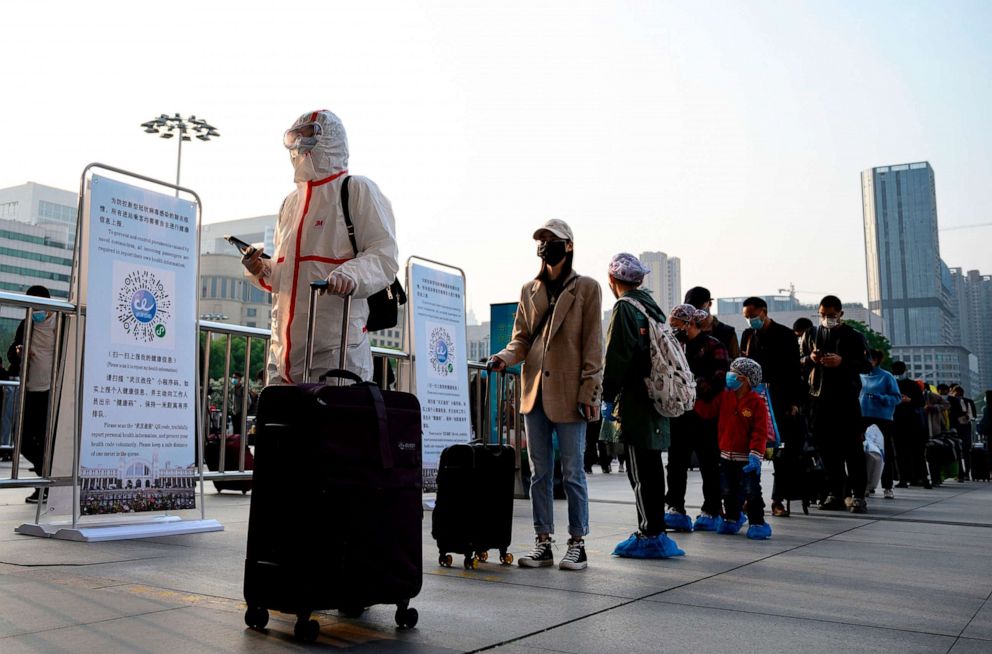
The World Health Organization's Beijing office informed headquarters on the same day, Dec. 31, 2019, that the pneumonia was of "unknown cause," after seeing the Wuhan health authorities' statement.
Amidst the celebrations, little did the people of Wuhan know that in less than a month the city would go into sudden lockdown -- isolated from the world -- becoming the first epicenter of the COVID-19 pandemic that would soon tear across the planet.
One year later, Wuhan -- the central Chinese metropolis of 11 million having emerged from lockdown in mid-April and without a reported case of COVID-19 since May -- prepares to ring out a "good riddance" to 2020 as much of the world still battles rising infections and deaths.
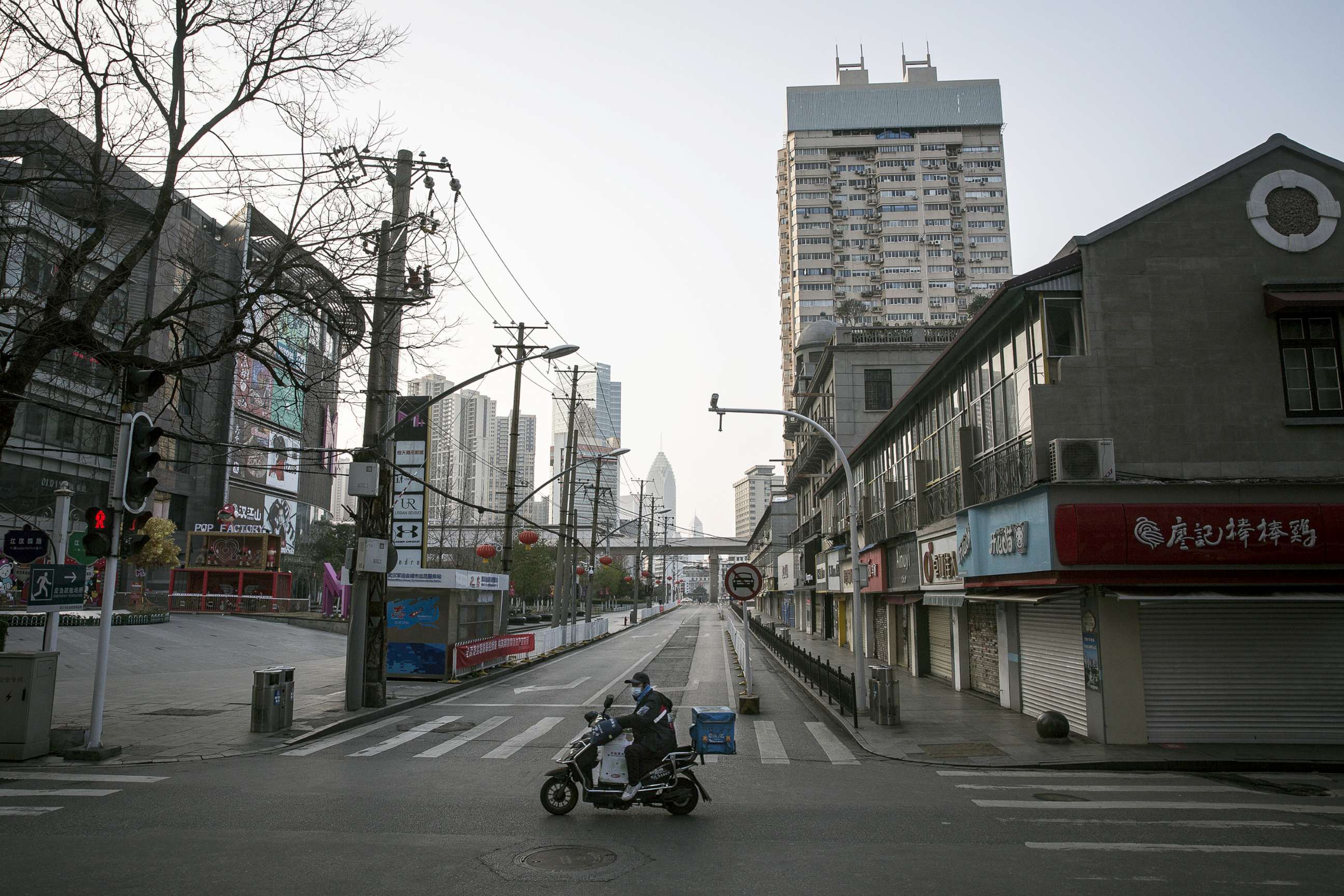
While the Huanan Seafood Market, where many of the first cases were detected, remains empty, boarded up and guarded, some normalcy has been restored in the town. The middle-aged square dancers gather nightly on the banks of the Yangtze River since lockdown ended. Throngs of children gawk in awe at the tanks of iridescent jellyfish, packing the interiors of Wuhan's East Lake Ocean Park. Hungry residents have flocked back to street food stands at the famed Hubu Lane neighborhood as live music rings through its alleyways.
"It's back to the normal state of life as before," businesswoman Hu Bei, a native Wuhaner, told ABC News. "I think we feel that the whole of Wuhan is still very safe. Even the whole of China is very safe. We are free of those worries and the worries of before."
Throughout the year, China's aggressive and strict measures of lockdown, border closures and contact tracing have managed to suppress COVID-19 within its borders. Authorities have moved quickly to implement measures to stamp out local outbreaks, including recent ones in the Beijing suburbs and the northeast province of Liaoning.
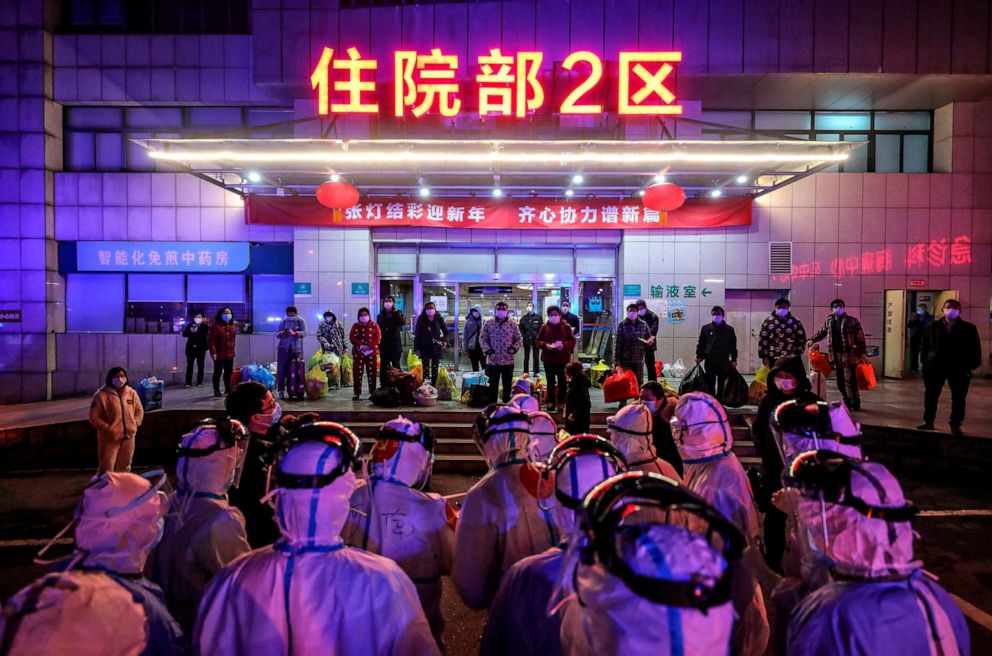
To date, China has reported a total 87,027 COVID-19 cases and 4,634 deaths nationwide, with Wuhan accounting for almost 60% of all cases and over 80% of the total deaths with 3,869. The U.S. lost 3,299 lives on Tuesday, Dec. 29, according to The COVID Tracking Project.
Closed off from the world, China has rebounded, being the only major economy to grow in 2020 and expecting even higher growth of 8.4% in 2021. Due to the pandemic, the London-based Centre for Economics and Business Research expects the Chinese economy to overtake the U.S.' in 2028, five years ahead of previous predictions.
"Apart from people wearing masks, I would say that, no, there is no difference from last year before the pandemic," 25-year-old Wuhan resident Ye Jialin told ABC News. Ye volunteered his time during the lockdown, feeding abandoned cats and restocking local supermarkets.
Despite some early missteps and delays in January which allowed the virus to slip beyond the city, and which Beijing has since blamed on the local Wuhan government, the actions the Chinese government took since quarantining Wuhan on the morning of Jan. 23, has given it leverage in addressing criticism from abroad, and perhaps most importantly, from its citizens.
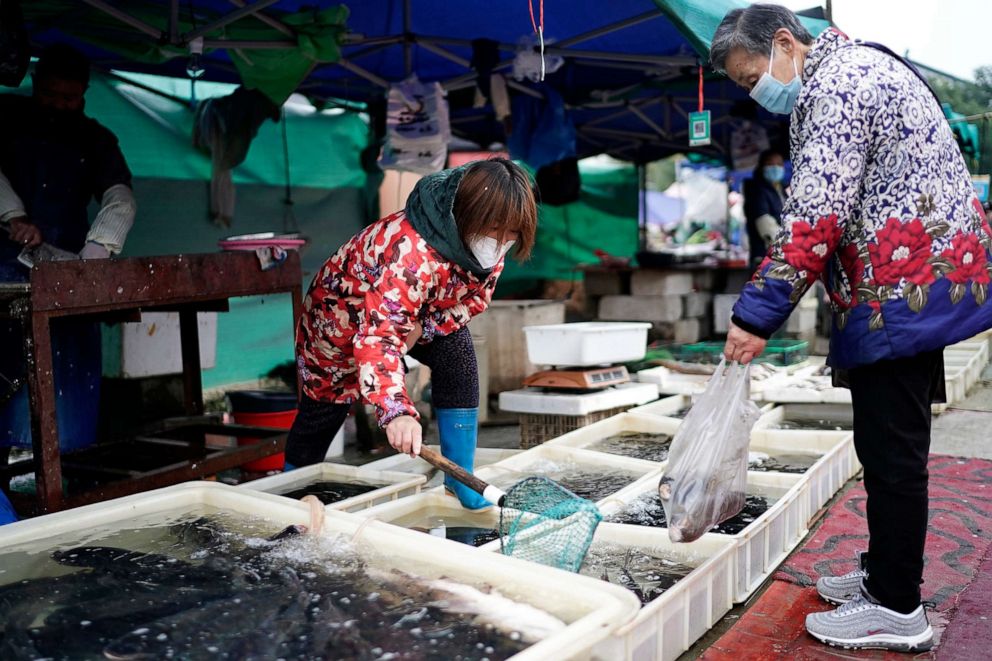
"At the critical moment ... the [Communist Party Leadership] took a long-term view ... achieving an extremely extraordinary glory in this extremely unusual year," China's Xinhua News Agency declared earlier this month, quoting a government statement.
Since mid-October, a massive temporary exhibit celebrating the front-line responders and exalting the government response has been housed in an expansive exhibition hall featuring holograms of doctors in full protective wear gathering around a hospital bed, and heavy machinery used to build the makeshift hospitals in record time. Amongst the pictures of the fallen doctors and nurses on a memorial wall is the smiling image and the only appearance of Dr. Li Wenliang, the ophthalmologist celebrated as a whistleblower at home and abroad who tried to warn his colleagues of the emerging virus on Dec. 30, 2019.
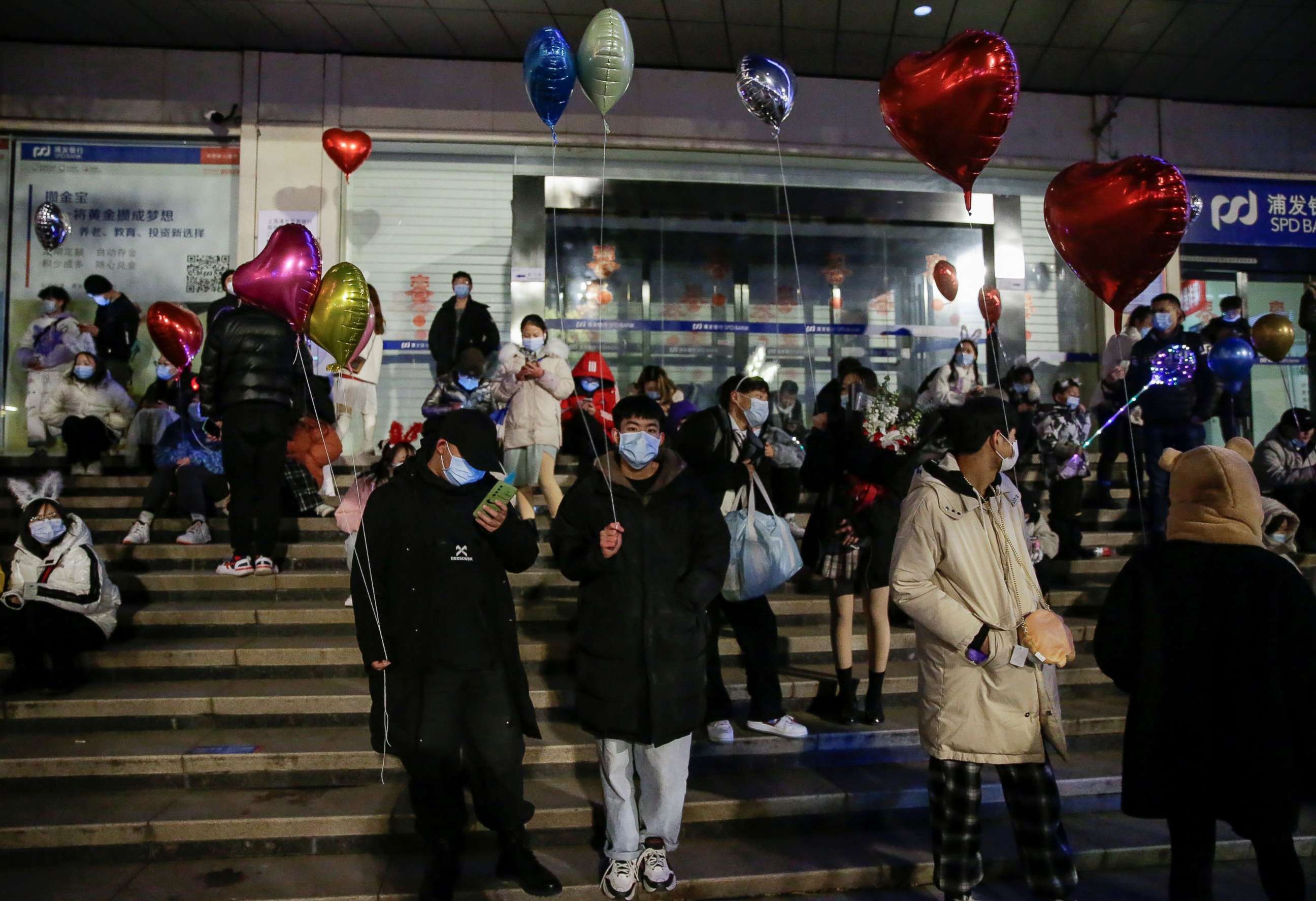
Li later succumbed to COVID-19 on Feb. 7, 2020, leading to a massive outpouring of grief and rage from Chinese citizens online, marking the only time the Chinese authorities almost lost their tight hold of controlling the narrative. The government's actions since reveal a lack of tolerance for any chance of that happening again.
At least four citizen journalists reporting the early details on the ground in Wuhan were detained. Two of them have not been heard from since and one of them, a former lawyer named Zhang Zhan, was sentenced by the Shanghai Pudong New District People's Court, earlier this week to four years in prison for "picking quarrels and provoking trouble," an ill-defined crime in Chinese law.
Despite success in suppressing the virus, lingering questions remain about its initial onset. Beijing's typical opaqueness on the matter is the subject of much criticism, especially as a WHO-led mission to investigate the origins of the virus is set to arrive in China and Wuhan in early January.
In recent days, a Chinese Centers for Disease Control study revealed the possible extent of the initial infections, finding through antibody tests that more than 4% of the city's population may have been exposed to the coronavirus, suggesting that over 500,000 residents may have contracted the virus earlier in the year, far exceeding the Chinese government's official tally of 50,008.
However, for those in Wuhan, what matters are the results: they have their home back.
Ye said that when he was younger, he had some misgivings about the state, but after experiencing how Beijing ultimately tackled the pandemic he began to see things differently.
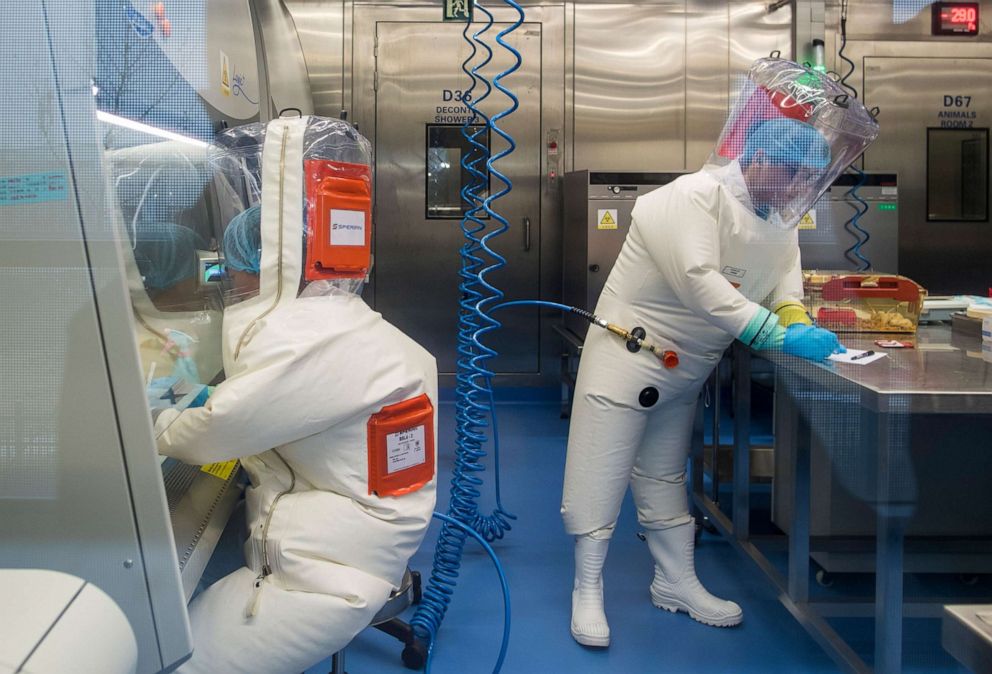
"Despite my previous views," Ye told ABC News, "and because we've all gone through such a huge social calamity, I have seen the clear sense of responsibility the government has shown us common people."
As a tough year closes, a genuine sense of gratitude and pride permeates through the former COVID-19 epicenter.
Reflecting on the year, businesswoman Hu Bei said, "The main thing I can say is that I really feel the strength of our country, the strength of our unity, the concern our government had for the people and that allowed us to quickly rise out of the deep water.
"And for that, I am very proud to be born as a Chinese person."




